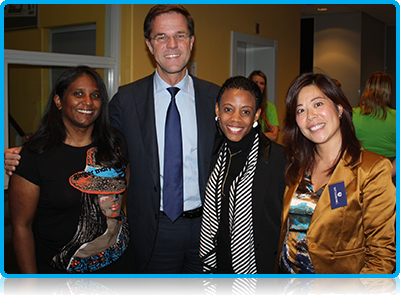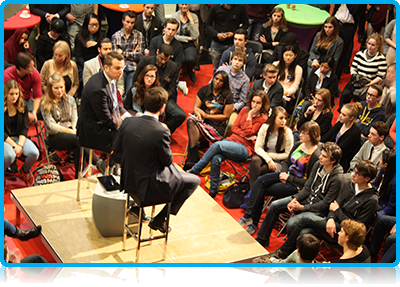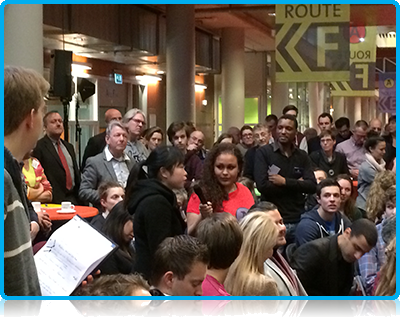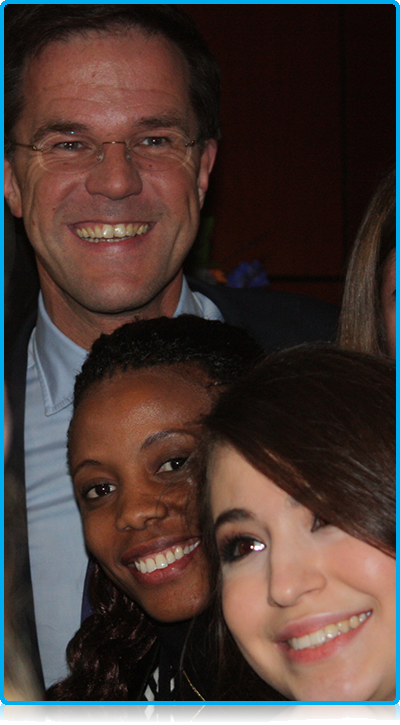Wittenborg Online News!
Dutch Prime Minister Mark Rutte visits Apeldoorn, Aventus and Wittenborg University
Dutch Prime Minister Mark Rutte visits Apeldoorn, Aventus and Wittenborg University

 Dutch Prime Minister Mark Rutte visits Apeldoorn, Aventus and Wittenborg University
Dutch Prime Minister Mark Rutte visits Apeldoorn, Aventus and Wittenborg University
Speaking to Wittenborg University students this afternoon, the Dutch premier emphasised that his government was doing everything it could to stimulate the chances for knowledge migrants from around the world to settle and work in the Netherlands. He added that he also supported international companies having a headquarters address in Holland, as it led to increased employment and wealth, and he rejected claims that the Netherlands was a tax haven. Two current Wittenborg students, and graduate Anesca Smith had the chance to speak to the Prime Minister.
Wittenborg University Director, Maggie Feng, met Mark Rutte together with her students, the directors of Aventus, and members of the local fraction of the VVD party in Apeldoorn.
Mark Rutte also took and discussed excellent questions from the Dutch students at Aventus, - ranging from the Netherland’s drugs policy (Rutte is very much against liberalisation) to the influx of immigrant workers from Poland, Romania and Bulgaria, which the premier saw as an issue that needed careful management however was good for the economy overall.

 In answer to questions about the Netherland’s standing in the world, Mark Rutte used Holland’s great achievement at the Sochi Olympics as evidence of how investment in talent has put the Netherlands at a number one position in the world, also in business, and while he acknowledged that the UK economy was doing well, in the EU, he questioned the robustness of it and pointed out that there was much “poverty” in GB on a whole, whilst the City was doing well. “Even the floods are being eased through Dutch technology”, he mused.
In answer to questions about the Netherland’s standing in the world, Mark Rutte used Holland’s great achievement at the Sochi Olympics as evidence of how investment in talent has put the Netherlands at a number one position in the world, also in business, and while he acknowledged that the UK economy was doing well, in the EU, he questioned the robustness of it and pointed out that there was much “poverty” in GB on a whole, whilst the City was doing well. “Even the floods are being eased through Dutch technology”, he mused.
Wittenborg’s Anesca Smith opened the round of questions, asking if the Dutch government’s policy of wanting to attract and keep knowledge migrants was not too ambitious, and that actually many international students graduation actually found it difficult to obtain proper work, especially with obstacles such as a 5000 euro levy on companies to employ students was too much for most SME’s. He answered that it was too complex a question and that he would be happy to respond to Anesca by email. … to be continued…
WUP 19/2/2014
by WUP
©Wittenborg University Press
368 words